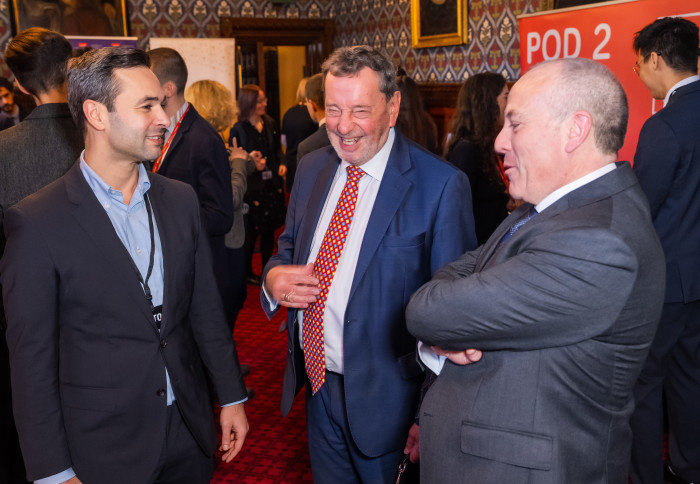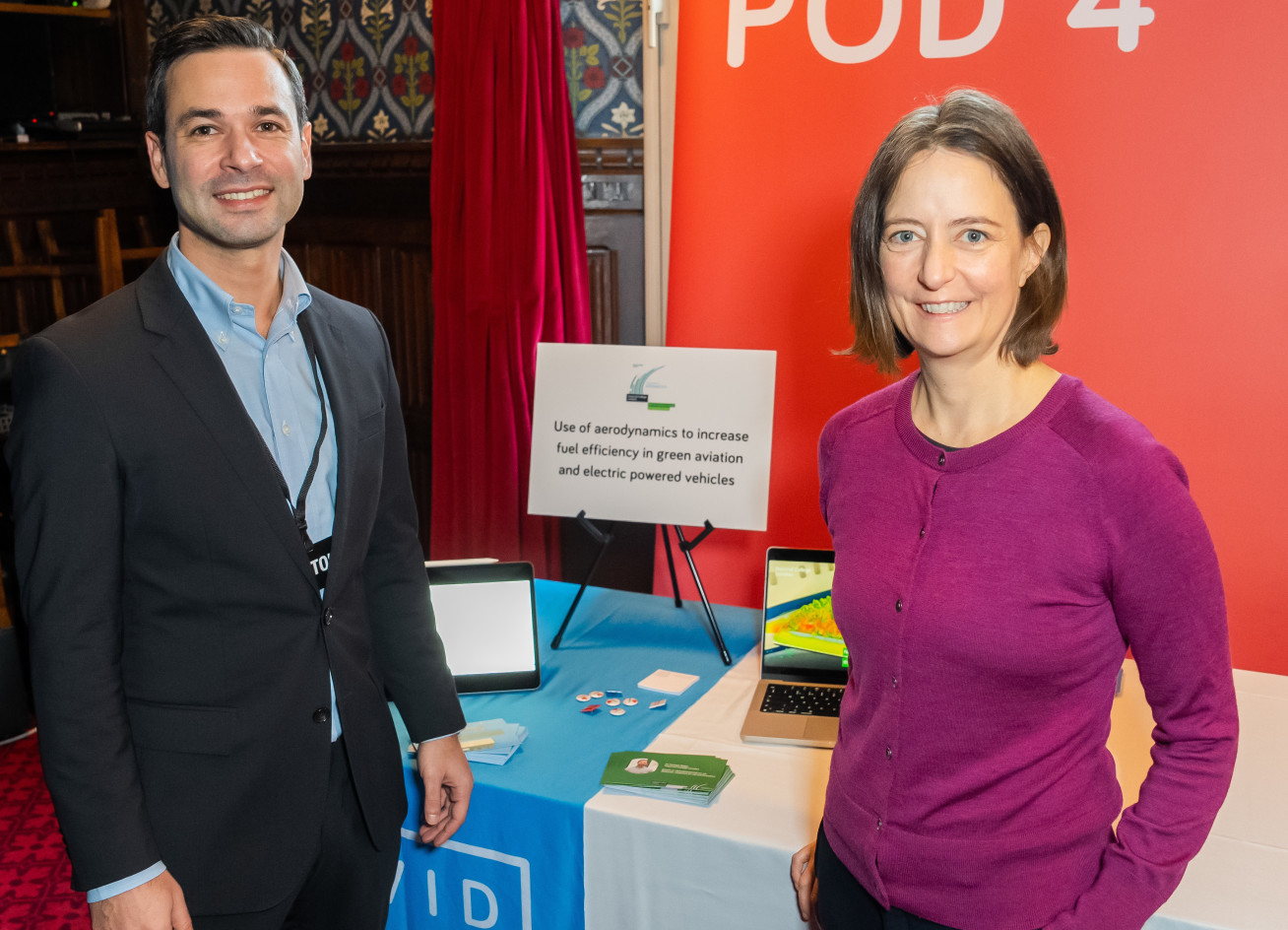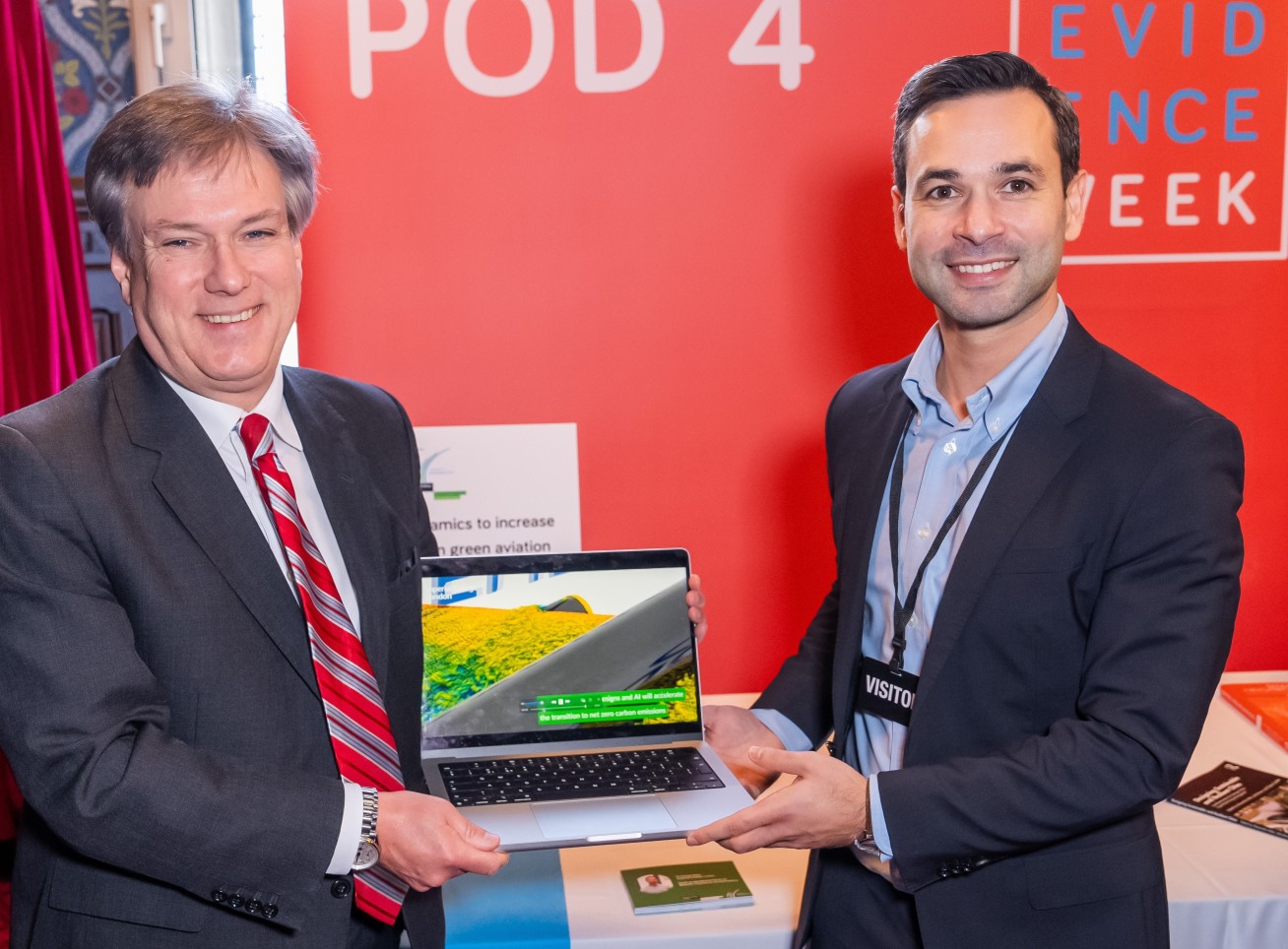Imperial aerodynamics expert briefs MPs on future vehicle design

Dr Georgios Rigas (l) with Lord Blunkett (c) and Mike Kane MP (r)
Dr Georgios Rigas attended Evidence Week 2022 and briefed MPs on how Imperial's aerodynamics research will improve future road and air vehicle designs
Dr Georgios Rigas, Senior Lecturer in the Department of Aeronautics at Imperial College London and affiliate of the Brahmal Institute for Sustainable Aviation, attended parliament last week to introduce his work on vehicle aerodynamics to MPs.
Dr Rigas’ research was featured in one ‘pod’ of the Evidence Week 2022 exhibition, which took place in the Jubilee Room of Westminster Hall on Wednesday, 14 November. Evidence Week is an annual event organised by the charity Sense About Science and the aerodynamics pod was produced in collaboration with Imperial Policy Forum, the College’s policy engagement unit.
Using aerodynamic modelling to reduce costs and emissions
Using novel audio-visual displays to demonstrate the way that air flows over road vehicles and aeroplane wings, Dr Rigas explained to MPs the huge savings that better aerodynamic design will mean for vehicles – both in terms of savings on fuel costs, and on the associated reductions in harmful emissions.
Reviewing evidence from the US state of California, where aerodynamic improvements to vehicles have been mandated by state legislation, Dr Rigas showed that fuel savings of billions of dollars over the last few years and almost one million tonnes of CO2 reductions have resulted from the real-world applications of novel aerodynamic technologies.
Dr Rigas was also able to demonstrate how new technologies developed at Imperial College will deliver even greater efficiencies. By replacing the current physical modifications to freight vehicles with jets of air capable of replicating their drag-reducing effects, these new improvements are calculated to drive fuel savings up from around 5% (in the Californian example) to nearer 20%.
Members of Parliament quizzed Dr Rigas on the affordability and level of savings that new approaches to aerodynamic design will be able to deliver. They asked about the legislative context, with some debate over whether legislative action (as in California), improved standards and guidance, or the free-market effects of demonstrating fuel costs savings will be the best approach to ensure improved vehicle designs in future.

Flights in the future: Redesigning aircraft
Members with interests in aviation were particularly interested to hear that the transition to hydrogen as a fuel source for flights will require a fundamental redesign of the aircraft we know today. With the fuel tanks being relocated from the wings to the back of the vehicle, to enhance passenger safety in the event of an accident, the aerodynamics of aircraft wings will need to be reformulated and a new generation of aircraft components produced.
The expertise of Dr Rigas and the wider Brahmal Institute will be essential to ensuring that the coming redesign of air and road vehicles are modelled to deliver the greatest benefits to users, and a head start in the international manufacturing race to UK businesses able to make use of these technological advances.

About The Brahmal Vasudevan Institute for Sustainable Aviation
The Brahmal Institute seeks to create new collaborations and close links between experts in aeronautics, entrepreneurship, technology development, finance and policy making, and those working to bring about a circular economy to the aviation sector.
We will apply Imperial’s unique strengths in both computational and experimental research, supported by our world-leading fundamental science, to develop multidisciplinary programs tackling system-level challenges, such as the trade-offs in sustainable aircraft design and scenario modelling to optimise future sustainable aircraft operations.
For enquiries relating to Dr Rigas' work and its implications for UK policymaking, please contact the Imperial Policy Forum team.
Article text (excluding photos or graphics) © Imperial College London.
Photos and graphics subject to third party copyright used with permission or © Imperial College London.
Reporter
Craig Whittall
College Headquarters